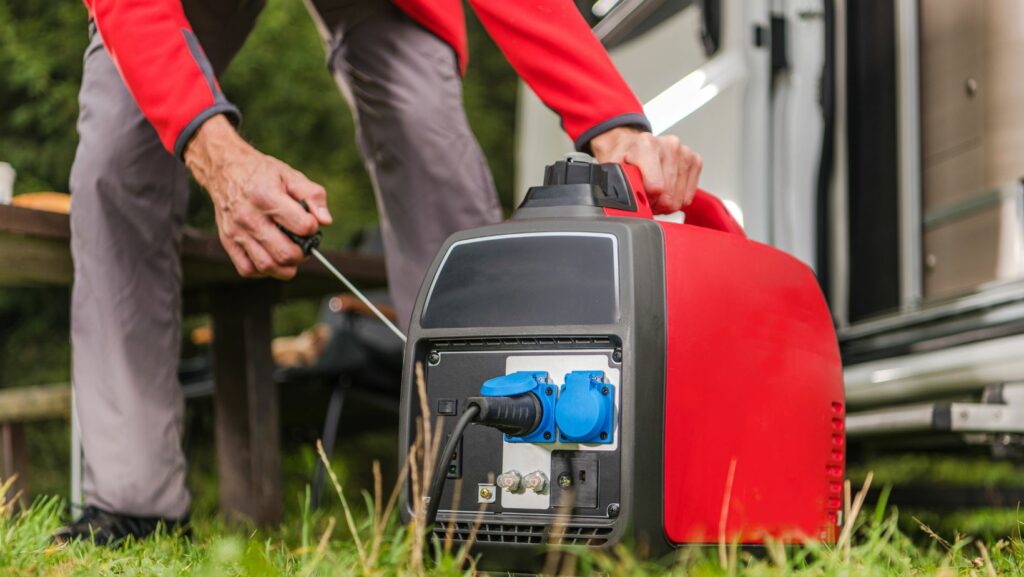
Generators provide backup power during outages, ensuring that essential appliances and systems remain operational. However, like all mechanical devices, generators require regular maintenance and can develop issues over time. Understanding the signs that indicate generator repair houston can prevent minor problems from escalating into significant failures. We will explore the key indicators that suggest your generator requires professional attention.
Unusual Noises
A generator that operates smoothly and quietly is typically in good working order. However, noticing unusual noises such as knocking, rattling, or grinding clearly indicates something is wrong. These sounds often indicate internal damage or wear and tear on essential components like the engine, alternator, or other moving parts. The source of these noises can range from loose bolts to more severe issues like a malfunctioning piston or damaged bearings. Ignoring these sounds can lead to more significant damage, resulting in costly repairs or even the need for a complete replacement. Regularly listening to your generator while running can help you catch these problems early, allowing for timely repairs and maintenance.
Difficulty Starting
One of the most obvious signs that your generator needs repairs is difficulty starting. A generator that struggles to start or fails to start altogether is unreliable, especially in emergencies. Various issues, including a weak battery, fuel problems, or issues with the spark plugs, can cause this problem. Additionally, it might be a sign of more complex internal problems, such as a failing starter motor or clogged fuel injectors. Regular testing of your generator’s start-up process can help identify these issues early. Ensuring that the battery is charged and in good condition, the fuel is fresh, and the spark plugs are clean can prevent starting problems. However, if these basic checks do not resolve the issue, it’s crucial to seek professional repair services to diagnose and fix the underlying problem.
Power Output Fluctuations
A reliable generator should provide a consistent power output that meets the demands of your home or business. If you notice that the power output fluctuates or the generator fails to supply adequate power, it’s a sign that something is amiss. Fluctuating power can damage sensitive electronics and appliances, leading to costly repairs or replacements. Common causes of power output issues include a malfunctioning alternator, voltage regulator problems, or fuel system issues. Regular load tests on your generator can help detect power output problems early.

By simulating the generator’s performance under various loads, you can identify and address any inconsistencies in the power supply before they cause significant damage. If power output fluctuations persist, professional diagnosis and repair are necessary to restore reliable performance.
Excessive Fuel Consumption
Generators are designed to operate efficiently, using a specified amount of fuel to generate power. If you notice that your generator is consuming more fuel than usual, it’s a clear indication that there is a problem. Several factors, including clogged air filters, fuel leaks, or issues with the carburetor, can cause excessive fuel consumption. Sometimes, it might also indicate engine inefficiencies or more severe internal problems. Monitoring your generator’s fuel usage can help you identify abnormal consumption patterns early.

Regular maintenance, such as cleaning or replacing air filters and checking for fuel leaks, can improve efficiency. However, if excessive fuel consumption continues, it’s essential to seek professional repairs to address the root cause and restore optimal performance.
Persistent Engine Problems
The engine is the heart of your generator, and any persistent problems with it are a cause for concern. Common engine issues include overheating, misfiring, or running rough. These problems can stem from various sources, such as low coolant levels, dirty fuel, or worn-out spark plugs. Overheating can be particularly damaging, leading to severe engine damage if not addressed promptly. Regularly checking and maintaining engine components, such as the coolant level and spark plugs, can prevent many common issues. If the engine continues to experience problems despite routine maintenance, it’s crucial to seek professional repairs. A thorough inspection by a qualified technician can identify and resolve underlying engine issues, ensuring your generator remains reliable.
Visible Wear and Tear
While internal problems can be more challenging to identify, visible signs of wear and tear are often easier to spot and should not be ignored. Inspecting your generator regularly for physical damage, such as frayed wires, corroded components, or loose bolts, can help you catch issues early. Physical damage can affect the generator’s performance and safety, potentially leading to electrical shorts or mechanical failures. Addressing visible wear and tear promptly through professional repairs can prevent these problems from escalating. Regular visual inspections and routine maintenance can keep your generator in good condition and extend its lifespan.
Recognizing the signs that your generator needs repairs is crucial for maintaining reliable performance and preventing costly damage. From unusual noises and difficulty starting to power output fluctuations and excessive fuel consumption, these indicators can help you identify problems early. Regular maintenance and prompt professional repairs can extend the lifespan of your generator and ensure that it provides dependable backup power when you need it most. By staying vigilant and addressing issues as they arise, you can keep your generator in optimal condition and avoid unexpected failures.



